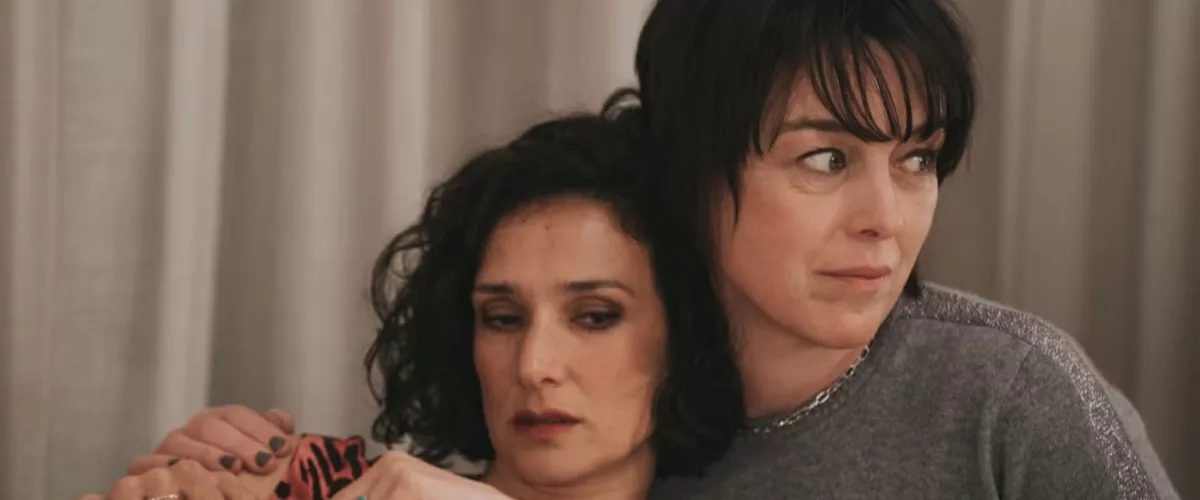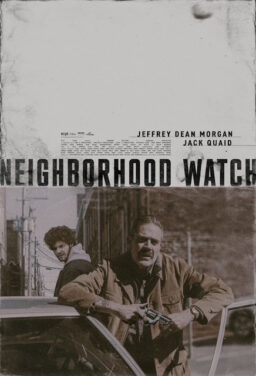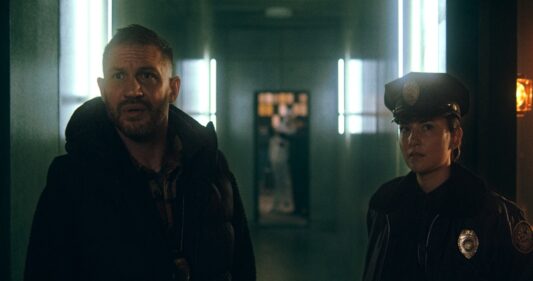The title and theme of “The Trouble with Jessica” echo one of Alfred Hitchcock’s lesser films, “The Trouble with Harry,” better remembered now more for Shirley MacLaine’s debut performance and the gorgeous fall scenery than for its chilly dark humor about a dead body that keeps being moved around. Here, the title character, Jessica (Indira Varma), is dead for most of this film, and it is also darkly humorous, sometimes lacerating, but not at all chilly. The tone is heightened and the stakes are savage as the score turns from classical to urgent, dissonant jazz.
Like “The Menu,” “Death of a Unicorn,” “Triangle of Sadness,” “Mickey 17,” “Glass Onion,” and other recent eat-the-rich-themed films, “The Trouble with Jessica” gives us wealthy, privileged characters faced with dire circumstances that expose their hypocrisy, cluelessness, and willingness to jettison morality at the expense of those with less power. It is divided into segments separated by arch chapter titles: “The Trouble with Friends,” “The Trouble with Neighbors,” “The Trouble with Rich People,” etc.
As it begins, Sarah (tiny, husky-voiced Shirley Henderson) and her husband Tom (Alan Tudyk) are getting ready for a dinner party in their spacious and luxurious London home. Tom is making his specialty dessert, a sort of French cherry pie called clafoutis, which will play a major role throughout the evening. We will learn that Sarah is under a lot of stress and that this dinner will be their last party in the house, so it is especially important to her.
The guests they are expecting are their closest friends, Richard (Rufus Sewell) and his wife, Beth (Olivia Williams), who call just before arrival to say that they are bringing Jessica with them. Shirley is very annoyed. She calls Jessica “Little Miss ‘Aren’t I Fascinating’” and complains that she shamelessly flirts with Tom. Jessica has just published a best-seller Shirley describes as “400 pages of confession porn.”
The friends have known each other since college, and in Tom’s home office, there is a photograph of the five of them in cap and gown at their college graduation. When they sit down to dinner, the conversation reflects a deep history and understanding of each other’s vulnerabilities, some of which inspire sympathy (Beth is protective of Jessica) and some reflect long-standing arguments. Richard and Beth spar over his career as a lawyer representing men accused of rape. He admits he hates cross-examining the victims and does not like his clients, but he is good at it and it makes him a lot of money. Beth, who counsels women survivors of domestic violence, has the privilege of feeling that she is morally superior while she benefits from the money Richard makes by not minding a bit of moral compromise. This is clearly a persistent source of conflict in their relationship, but compared to what comes next, their discussion is a simmer, not a blast.
The blast comes from Jessica, who is sharp-tongued and manipulative. She tells Richard he is a charming amoralist and Beth she is “a po-faced do-gooder.” She accuses the couples of being boring and unfairly lucky. This prompts Sarah to tell the group that Tom’s most recent architectural project has gotten them into such a dire financial bind that they have had to sell the house and are desperately hoping to close the deal immediately. This is the first, but not the last, time someone in the film will say that if things do not go well, it will “end me.”
The one who is ended, though, is Jessica, who steps out into the garden and commits suicide. Sarah’s first reaction is that if they call the police, the people buying their home will cancel, and their last hope of financial stability will be gone. She is the first to show us that under pressure, even people who like to think of themselves as “good” will realize that they are more selfish than they allowed themselves to admit. Sarah’s view is that it does not matter where Jessica died, so why not move her? When Tom objects, she barks, “You don’t have the luxury of a conscience right now.”
At first, Tom, Beth, and Richard are horrified and want to call the police immediately. But as the evening wears on, and the doorbell keeps ringing with unexpected visits, we discover more about the characters’ history. And we see the ethical tipping points that end up with a farcical but still genuinely tense effort to move Jessica’s body.
The script, by James Handel and director Matt Winn, is tightly constructed. The surprise visitors that keep showing up prevent it from getting too talky. When they do talk, the characters’ long history, including support for each other in difficult times, gives them exactly the ammunition they need to provoke and push each other. Seeing how quickly they burst through the thin veneer of cozy comity and unleash utter ruthlessness is unsettling but bracing. At first, we lean forward, trying to figure out who will jettison sensible rationality. By the end, though, we are left wondering uncomfortably what our own tipping points might be.




















